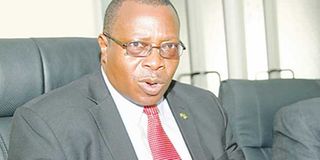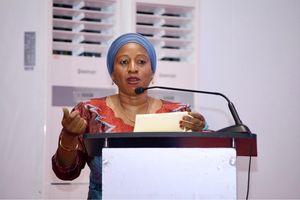EDITORIAL: Heed advice on managing state - owned companies

Minister for Finance and Planning, Dr Philip Mpango. File Photo.
What you need to know:
- Running SOEs requires technical skills and related experience, both of which help managers to make informed decisions.
While state-owned enterprises (SOEs) have great potential to contribute to national economies, they nonetheless are at some point or other hampered by political interference.
Running SOEs requires technical skills and related experience, both of which help managers to make informed decisions.
It is for this reason that experts who spoke during roundtable discussions in Dar es Salaam on Tuesday faulted the appointment of politicians to managerial positions in government enterprises.
It is good news, though, that the government understands the importance of keeping cheap politics out of business, as confirmed by the Minister for Finance and Planning, Dr Philip Mpango, during the discussions.
The key issues regarding state-run enterprises have always been accountability and transparency in their operations. Some of them are not audited for years, while others operate without appropriate business plans.
Apart from keeping politics out of government firms, we also urge the government to consider listing them on the Dar es Salaam Stock Exchange (DSE). The bourse has regulations that require listed companies to disclose their financial results and other important information regarding management of the business.
For instance, the guidelines require disclosure of age, qualification and relevant experience of directors and management for the preceding five years. Another criterion for firms to list on the main investment market segment of the DSE is to have a company applying for listing to publish its annual accounts for the preceding three years.
The accounts must be in accordance with the Companies Act, 2002, and must be prepared and independently audited according to approved standards.
So, by offloading some shares, and, of course, raising capital by way of initial public offering (IPO), state-run firms will improve their management and operations, especially considering that they will be more accountable.
Time to rethink by-elections
Tanzania is still struggling to emerge from abject poverty and other socioeconomic woes more than half-a-century after political independence. Yet it is willing and ready to beg, borrow and otherwise raise cash to splash on by-elections.
By-elections are held between regular elections to choose new MPs and councillors as replacements after the resignation, defection, death or unseating by the court of incumbents.
Preparations are currently being made for by-elections in Buyungu Constituency, whose MP died in May, and 79 wards across Tanzania Mainland.
Slated for August 12 this year, the by-elections are estimated to cost some Sh3 billion, a hefty sum by Tanzanian standards. Billions of shillings have already been spent on parliamentary and civic by-elections since the 2015 General Election.
Admittedly, genuine democracy can be expensive, but considering that by-elections are increasingly becoming a heavy burden on taxpayers, the government should think out of the box and come up with a functional alternative in the future. For example, instead of holding by-elections, the political party that loses a sitting legislator or councillor should be allowed to nominate a replacement from its ranks, and life should go on until the next General Election. Alternatively, the second-placed candidate in the previous election could be considered as a replacement. It’s food for thought.




